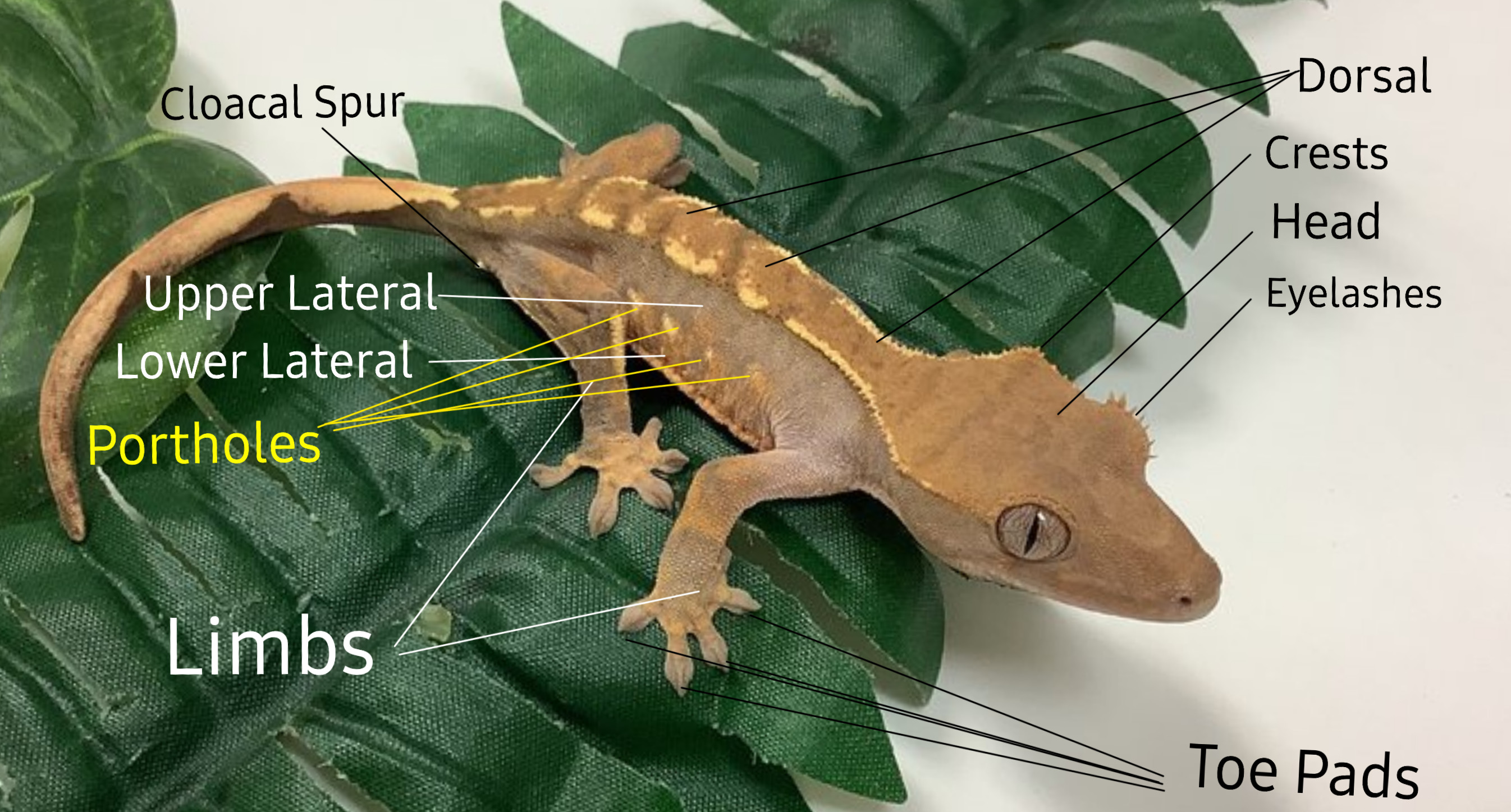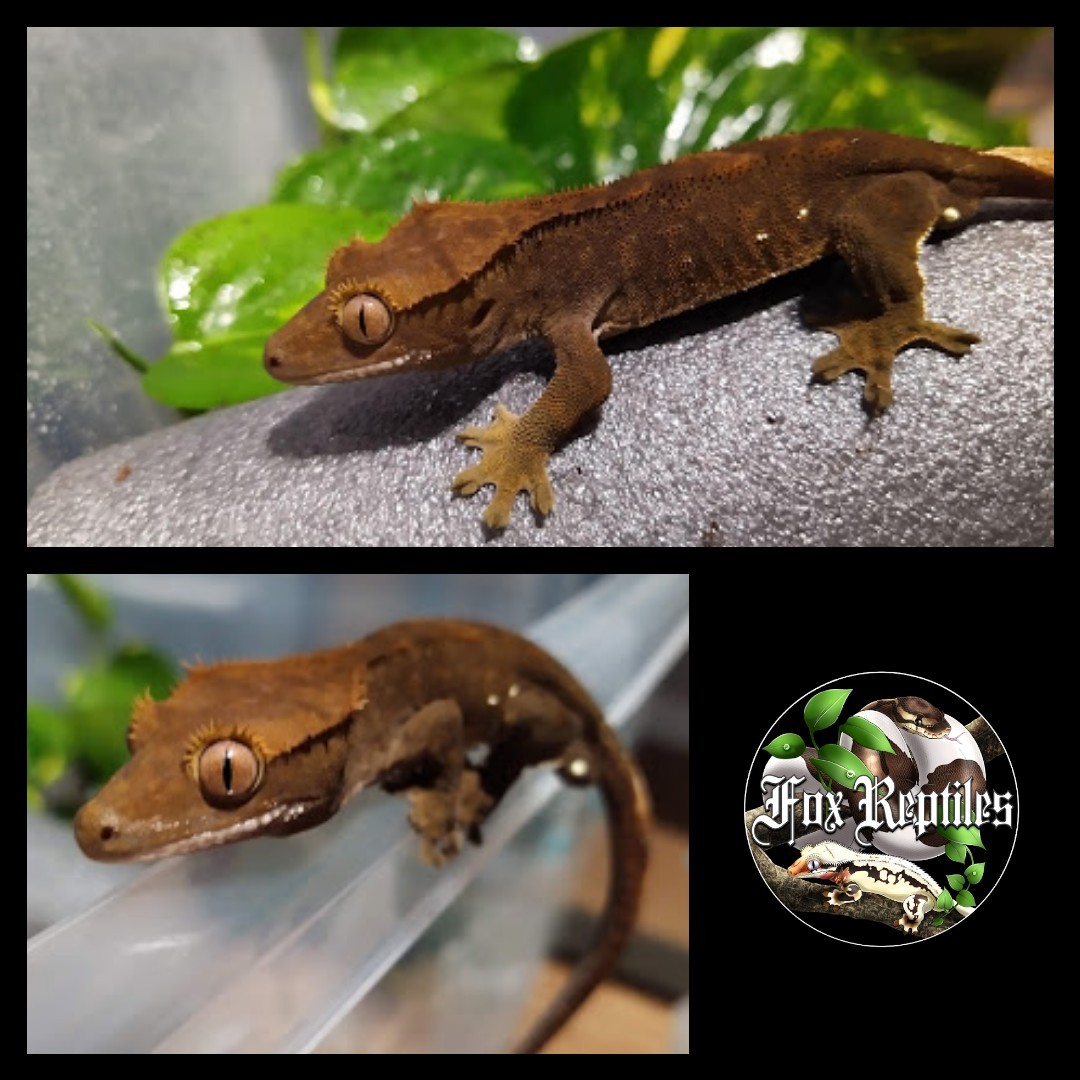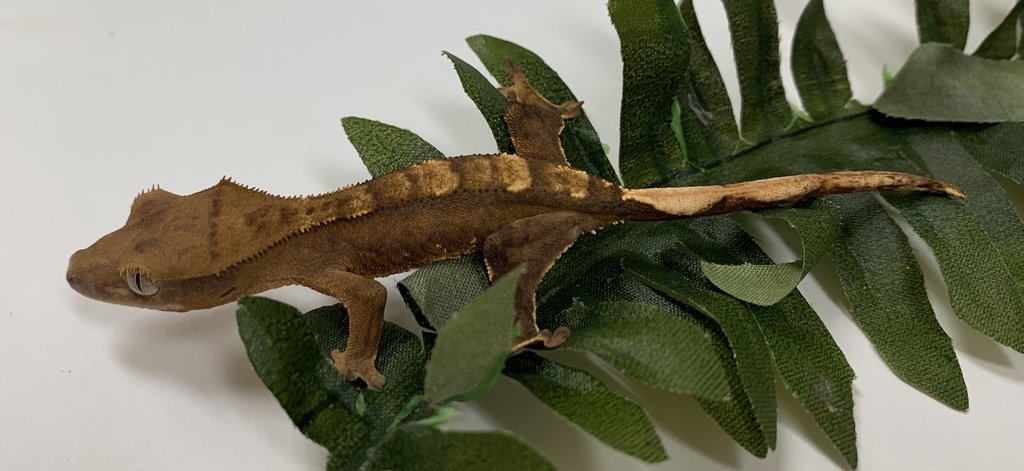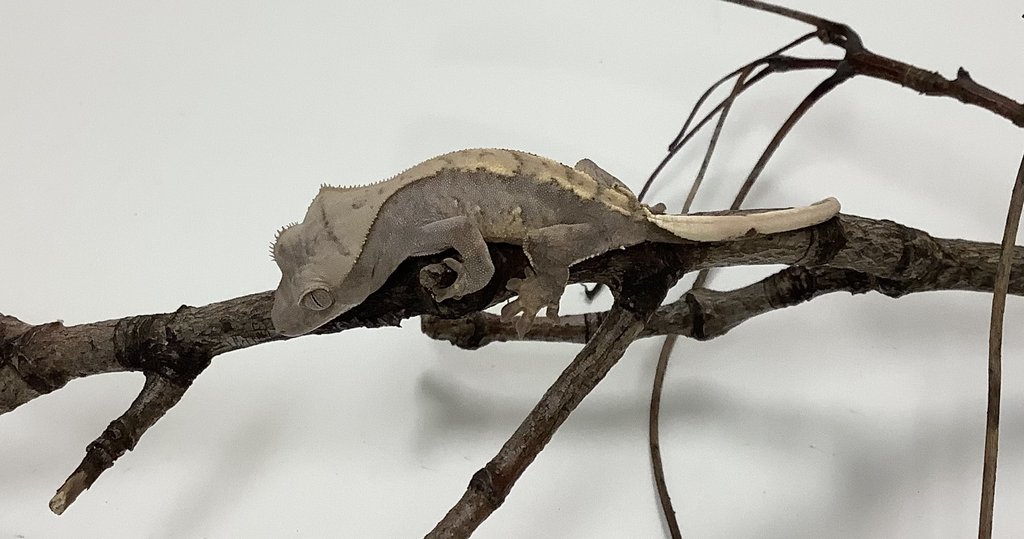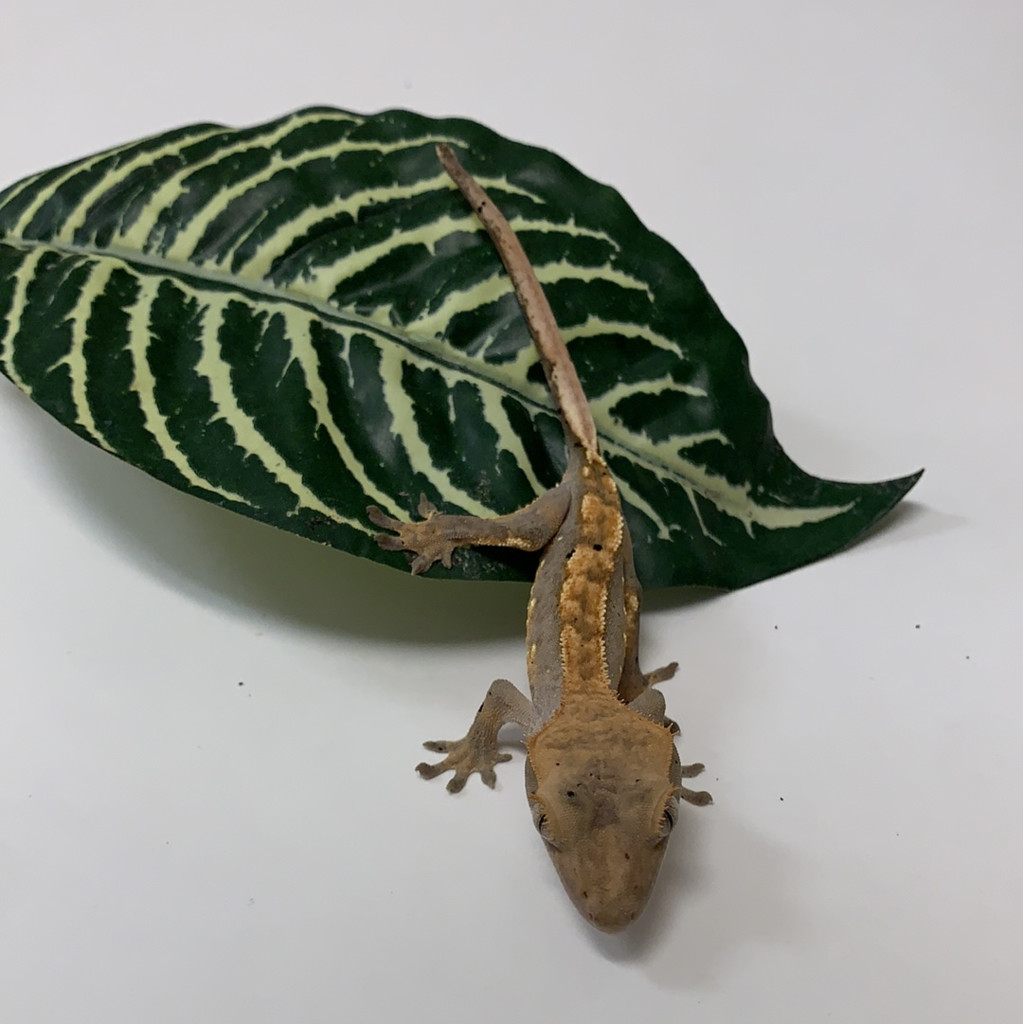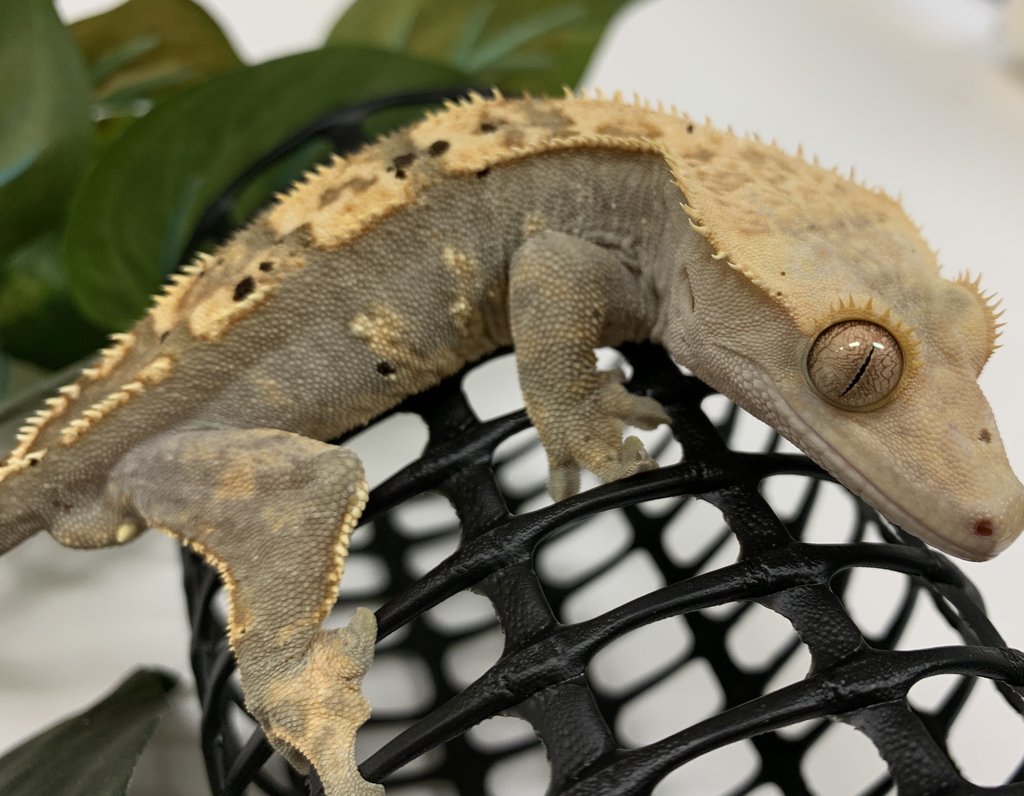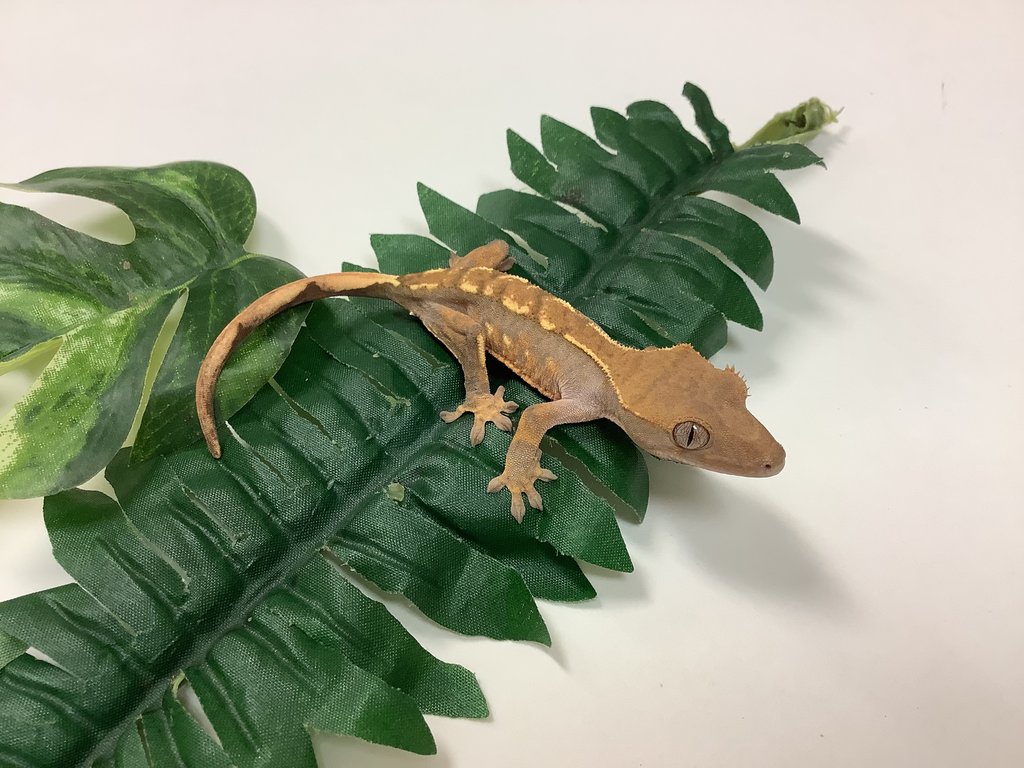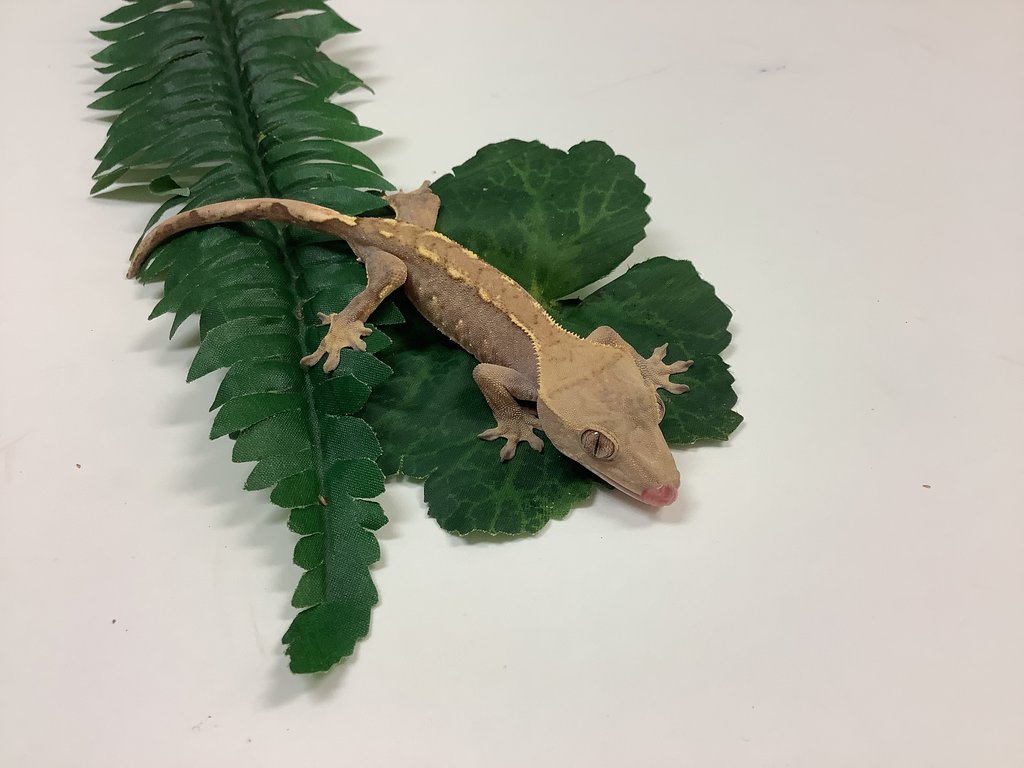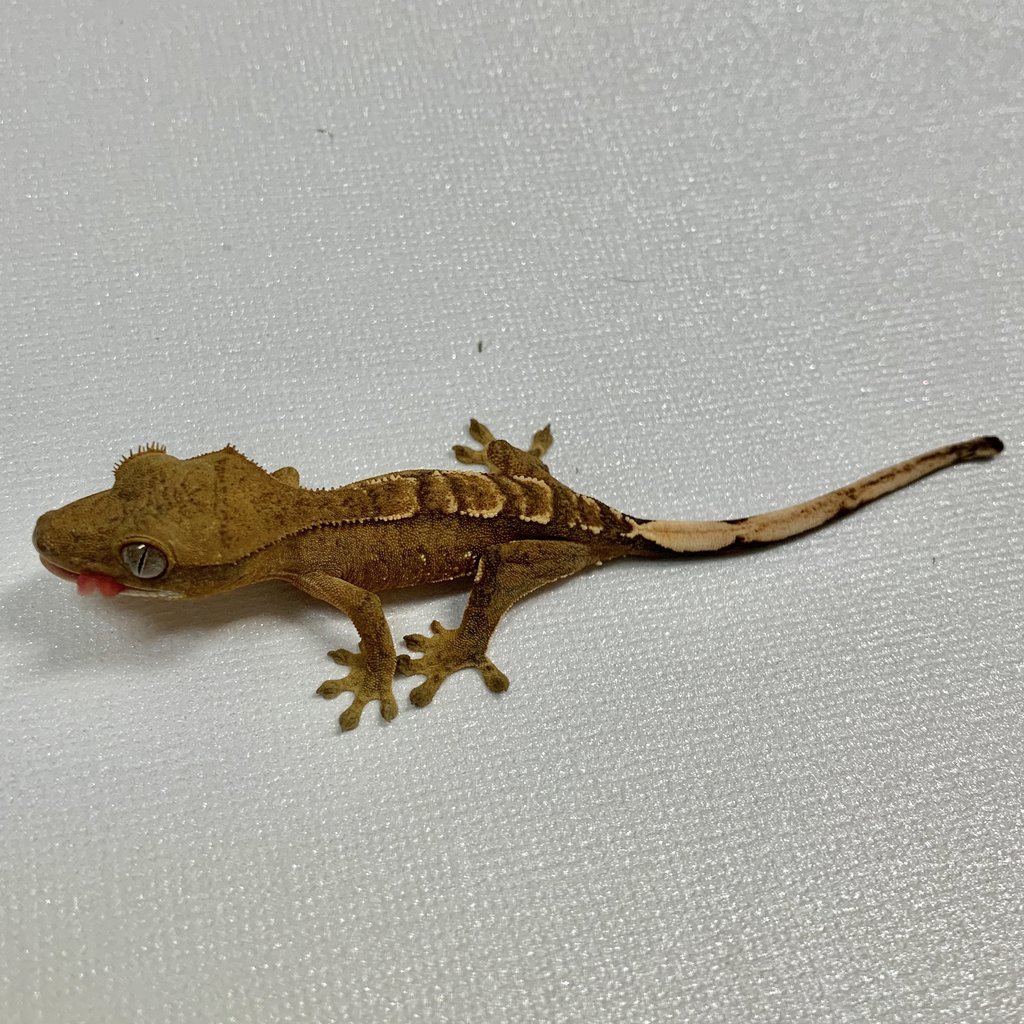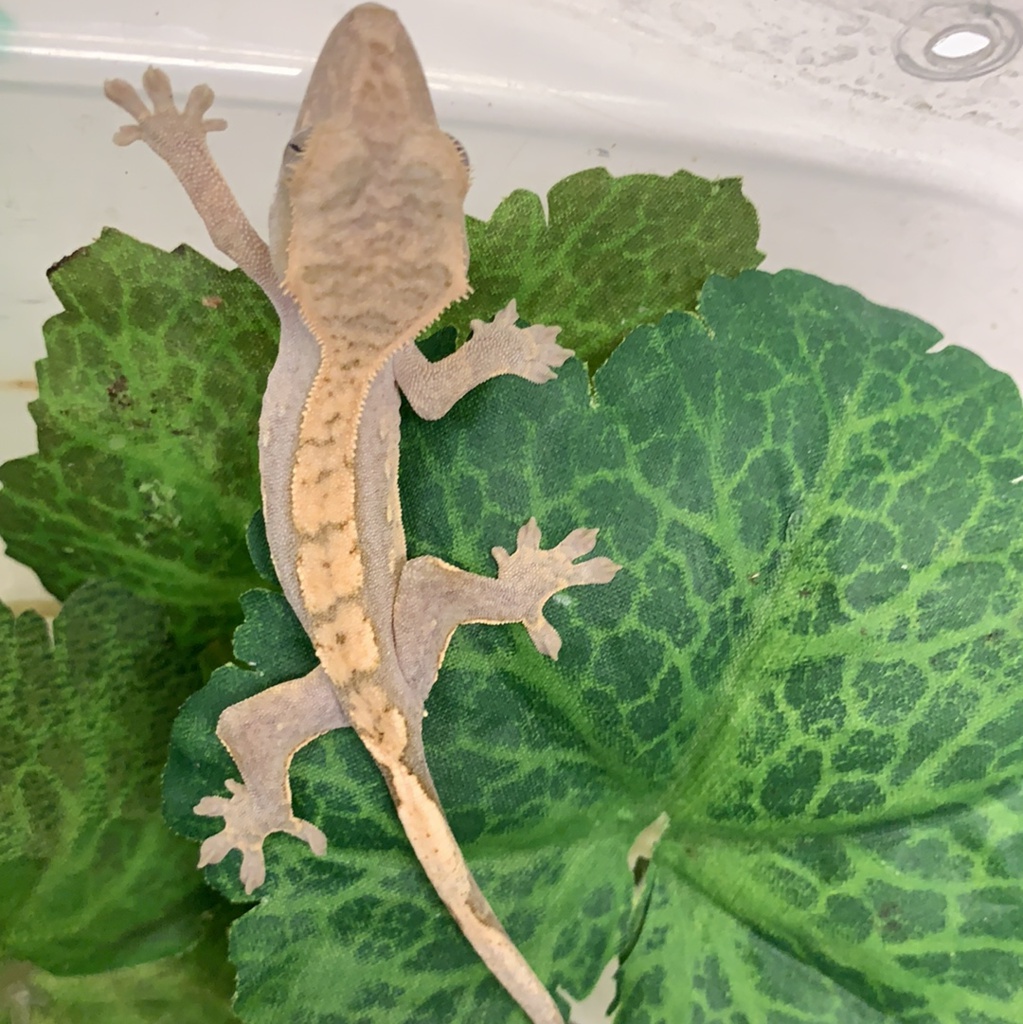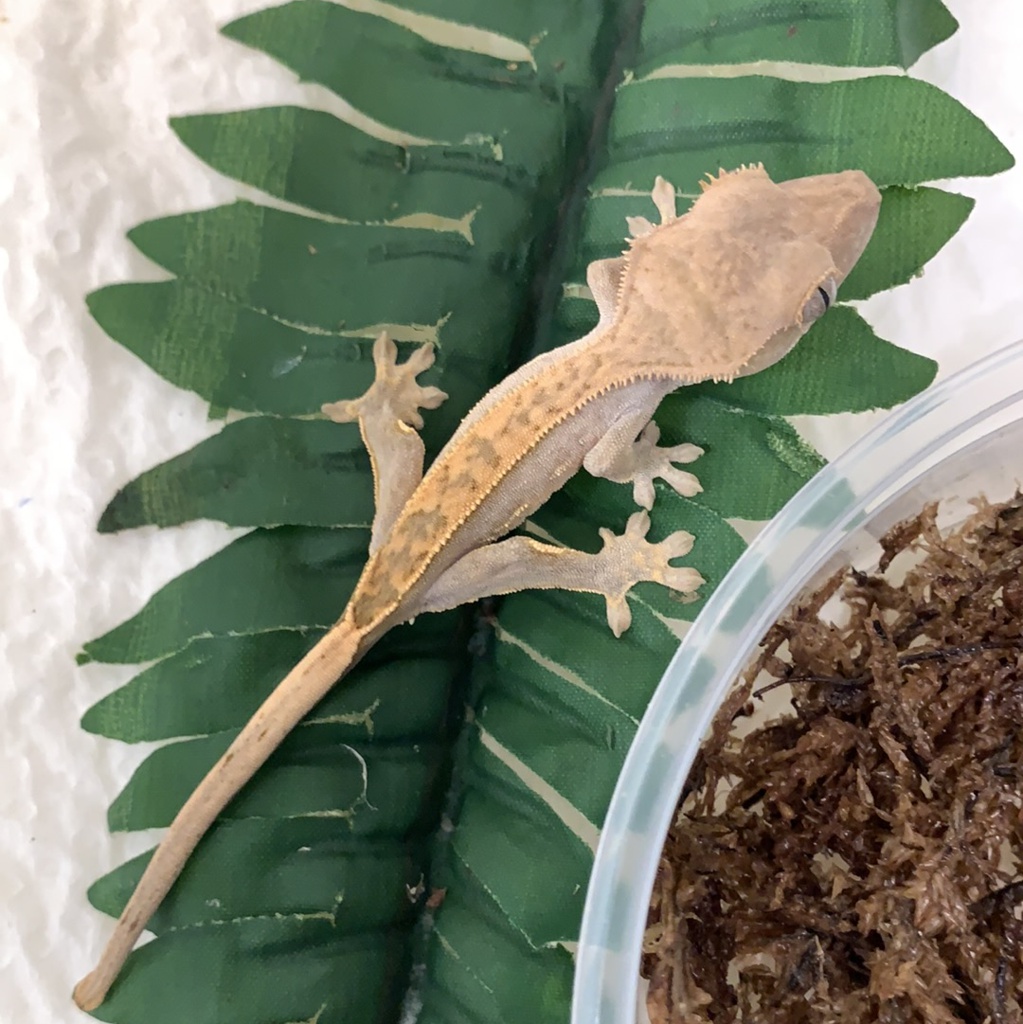Normal
Type: Other
Aliases: Wild, Classic
Issues: N/A
First Produced In: 1994
Availability: Rarest
Last Updated: 2025-01-28
Do you have any suggestions or corrections for this article?
Click here to contribute feedback
About
History
The crested gecko was once thought to be extinct in the wild until 1994 when a tropical storm uncovered a small population on lle de Pins, a small island in the Pacific Ocean which is part of New Caledonia. A number of the geckos were taken into captivity to be studied.
New Caledonia is a group of islands with areas of thick jungle. Crested geckos are arboreal, meaning that they live off the ground, in branches. This species will eat both fruit and insects and may also eat small mammals and amphibians in the wild. Crested geckos have adapted to a life of high heat and humidity and are crepuscular (active at dusk and dawn), hiding away from predators during the day This species can change its colour - when it gets darker, this is called firing firing up’
Appearance
Head
Body
Although many consider brown, buckskin, or olive geckos Normal, there is a huge difference between them. Through selective breeding in captivity, breeders can improve upon the wild type cresties.
The brown coloration, originally referred to as “Buckskin,” has been pulled out over the years but there are several animals in the hobby that still display the color.
Belly
The belly of a wild type Crested Gecko can vary.
Tail
The tail of a wild type Crested Gecko can vary.
Proven Lines
No known proven lines
Related Traits
No known related traits
